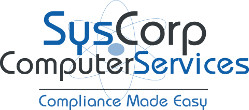SAVE YOUR SERVER SPACE WITH SERVER VIRTUALIZATION
New technology is hard to keep up with, especially when it involves more space, time, and management. Virtualization is a flexible tool that allows you to move server workloads around so you can always have the optimum performance out of each one. Our virtualization services help save space and money and doesn't use up more servers, computers, or people.
What Is Desktop Virtualization?
Desktop virtualization is computer simulation technology to allow access to a desktop machine, user workstation, or server from a remotely connected device. Virtualization typically operates in a host-based or client/server model. Virtual services work to separate the desktop environment and its applications from the user's physical device. Virtualization moves server workloads around the network and maximizes available computing performance.
How Does Desktop Virtualization Work?
Hardware virtualization technology shares resources and processing power with virtual desktops, also called virtual machines (VMs), running on the host. Commonly, access is provided over the Internet with a host-based or Remote Desktop Protocol (RDP) client on a mobile or remote device, including traditional PCs, smartphones, tablets, and thin or zero clients. User sessions are linked to VMs via a connection broker.
Desktop Virtualization Deployment Options
Three common types of desktop virtualization deployment are known as Virtual Desktop Infrastructure (VDI), Remote Desktop Services (RDS), and Desktop as a Service (DaaS).
VDI runs virtual machines containing the desktop image on a central data server operating system (OS). A hypervisor manages a server to create different desktop images, and dedicates a virtual machine running its own OS to each user. RDS allows users to remotely access shared desktops, apps, and host resources. DaaS users access desktops and apps from remote devices using cloud-based applications and virtual services managed by a third party.
Types of Virtualization Technologies
Several types of virtualization technology and virtual services are available. The two most common configurations are host-based virtualization and client-based virtualization.
Host-based virtualization uses a traditional client/server model or an actual physical machine configuration in which users connect to a shared desktop and individual applications run on the server. Client-based virtualization requires processing to occur on local hardware, usually a fully functional PC or group of desktops, and may use OS streaming. Typically, this set up requires a constant network connection. Client-based virtual machines are regularly synced to the server disk image.
Benefits of Virtualization
Virtual services provide many benefits depending on the technology and deployment strategy selected for your business. In general, benefits include immediate cost and time savings, and optimization of human and computing resources. Virtualization environments mean you need fewer servers, thereby reducing capital outlays and operating costs. Optimize the servers you have with a customized desktop virtualization solution.
Computer networks, hardware acquisition, and employee computing needs are also more readily addressed with virtual services. Desktop virtualization can extend the life of older equipment and reduce the need for investment in servers, software, and other infrastructure. Cloud-based virtualization in particular, such as DaaS, operates with significantly less investment in capital-intensive computer equipment.
Improved productivity and software consistency across employee groups and functions are additional benefits of virtualization technology. Employees can work securely from anywhere on different devices and device types, regardless of OS and other constraints, as long as the network connections are appropriately managed. Virtual machines deliver quality workstation-like experiences, and software loads and runs faster. The overall computing experience is enhanced. Generally, VMware and VMs are easy to set up, operate, and update.
Network management, addition or updating of applications software, and computer security are all simplified with virtual services. Virtualization offers peace of mind through fast and simple network recovery in the face of unexpected computing challenges.
SysCorp Computer Systems is a leading Managed Services Provider (MSP) in Murfreesboro, TN, with the skill and passion to take care of your computer network so you can focus on what you do best — run your business. Contact SysCorp Computer Systems to learn more and get your office started with the best customized desktop virtualization solution to meet your needs.
When you sign up with SysCorp Computer Services' virtual services, you can expect:
- Reduced costs, going green – With virtualization, you will be able to stop buying servers and optimize the ones you have, thus reducing electric costs and server costs significantly.
- Faster application and computer performance – Programs and files will load faster, resulting in more work time.
- Peace of mind with unexpected problems – Disasters happen, but you can be ready to get your network back online with a simple recovery program.
Call today and reap the benefits of virtualization services.


